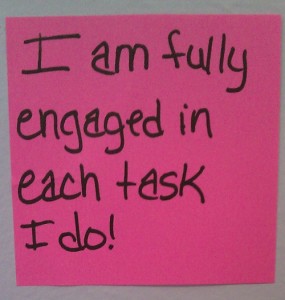![frustration_by_[jeremy]](http://www.oneinsightcloser.com/wp-content/uploads/2011/06/frustration_by_jeremy-199x300.jpg) There was a time of my life when I absolutely dreaded being called into someone’s office, because it generally meant one of three things:
There was a time of my life when I absolutely dreaded being called into someone’s office, because it generally meant one of three things:
- I was going to be given more work to do (I already had too much to do and not enough time to do it).
- I was going to sit through a meeting that wasn’t going to do anything for me other than take time away from my other tasks.
- I was going to be “yelled at” for something falling through the cracks because I was working on other higher priority issues and now this thing was the high priority.
No option was something I wanted to spend my time on.
In this and the next two posts I’ll go through one option and review how I reacted and an alternate that might have made me (and the people around me happier).
1. I was going to be given more work to do (and I already had too much to do and not enough time to do it).
How I reacted:
My outward reaction depended on who was giving me the task. If it was someone I felt fairly comfortable with I might let them know that I was frustrated I was getting additional projects or tasks. If it wasn’t someone I felt comfortable with I’d say “Ok”, get any details I needed and head back to my cube. In either case I was annoyed and frustrated that something else was being “dumped” on me.
I also wondered if anyone actually appreciated the work I got done, because it felt like as soon as I got something done I got two or three more things to do. I felt punished for getting work done in a timely manner sometimes.
An alternate:
Instead of being upset and complaining to myself that things were being “dumped” on me. I could have made a request to that something else be taken of my plate or a deadline be moved. I was extremely reluctant to speak up for myself because I was sure I would be shot down. The biggest problem with thinking like this is that I never tried so I can’t actually say what would have happened.
This also ties into not complaining. Complaining lowers your energy, both mentally and physically. I spent so much time complaining about what I was doing and what I had left to do that I wasn’t putting as much attention into what I was working on.
Also, take a look at the language I was using. I felt “dumped” on. Of course I wasn’t going to be happy doing whatever task was just assigned to me! Changing my language to a more neutral tone would have made a difference. Instead of saying a task got dumped on me, I could have just as easily said I have a new task.
As for being appreciated, I found very little of what I was doing to be “fun,” so I wanted to be appreciated for all the “not fun” things I was doing. Well, no one was going to pat me on the head and say good job every time I did something that was my job to do. I don’t mean that harshly, it’s just the truth. Another truth is if you go into something dreading it and thinking about all the other things you’d rather be doing (things like not being at work), then you’re not going to enjoy what you’re doing.
The ironic thing is that I wasn’t appreciating what I was accomplishing each day. If I’m not appreciating what I’m getting done, why would someone else? Taking 30 seconds after completing a task to allow myself to feel a sense of accomplishment could have made a big difference.
What would you recommend someone do in a situation like this? Let me know in the comments.






